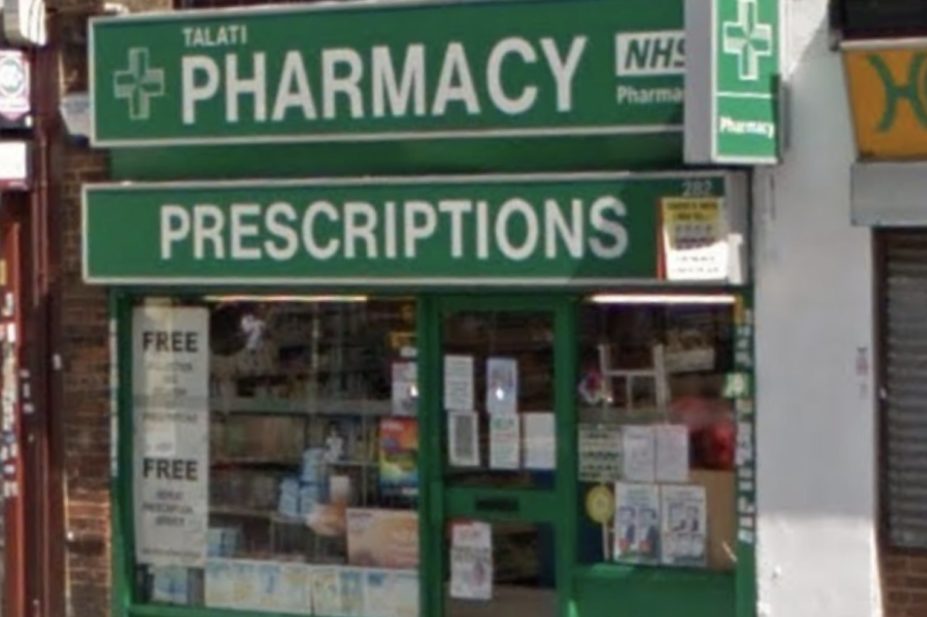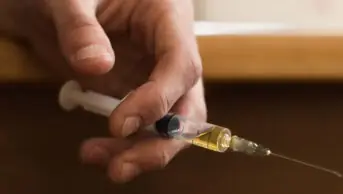
Google, Maxar Technologies
Open access article
The Royal Pharmaceutical Society has made this article free to access in order to help healthcare professionals stay informed about an issue of national importance.
To learn more about coronavirus, please visit: https://www.rpharms.com/resources/pharmacy-guides/wuhan-novel-coronavirus
Navin Shantilal Talati, a pharmacist and founder of Talati Chemist in Dagenham, Essex, has died from COVID-19, The Pharmaceutical Journal has learned.
Talati, who was aged 80 years and had been a member of the Royal Pharmaceutical Society (RPS) for 46 years, died on 18 April 2020.
The Barking and Dagenham Post
reported that Talati was named as Essex Pharmacist of the Year in both 1987 and 1991. Speaking to the newspaper, Minesh Talati, Mr Talati’s son, said that in the early 1980s his father had redesigned blister packaging used in nursing homes, which reduced errors in drug administration.
Commenting on Talati’s death, Paul Bennett, chief executive of the RPS, offered his “sincere condolences to Mr Talati’s family at this very difficult time”.
“Navin Talati spent his career supporting members of the public and his patients,” he said. “His loss is not only a tragedy for his family, friends and colleagues, but also for all the patients he helped during his career.”
It has also been reported that Jermaine Wright, a senior pharmacy technician in the aseptics unit at Hammersmith Hospital, died from COVID-19 on 27 April 2020.
In a statement published on 30 April 2020, Ann Mounsey, chief pharmacist at Imperial College Healthcare NHS Trust, said that Wright’s work had “helped save countless lives”.
On 28 April 2020, a worldwide minute’s silence was held for healthcare workers who had died from coronavirus.
At that time, four pharmacy professionals were confirmed to have died from the virus: hospital pharmacist Pooja Sharma; community pharmacists Jayesh Bhanubhai Patel and Mehool Patel; and registered checking technician Mandy Siddorn.
The deaths of Talati and Wright occurred before Public Health England (PHE) produced guidance — leaked to Sky News on 11 June 2020— that made seven recommendations to mitigate the disporportionate number of deaths among people from a black, Asian and minority ethnic (BAME) background.
These include a recommendation to “accelerate efforts to target culturally competent health promotion and disease prevention programmes for non-communicable diseases: promoting healthy weight, physical activity, smoking cessation, mental wellbeing and effective management of chronic conditions, including diabetes, hypertension and asthma”.
The guidance also recommends accelerating “the development of culturally competent occupational risk assessment tools … to reduce the risk of employee exposure to and acquisition of COVID-19”.
NHS England wrote to community pharmacies on 29 April 2020 advising employers to “risk-assess staff at potentially greater risk” of COVID-19 using its risk assessment tool published by the Faculty of Occupational Medicine.
However, pharmacy leaders later expressed concern that risk assessments of BAME staff’s susceptibility to COVID-19 were not widespread enough in community pharmacy.
On 11 June 2020, the Pharmacists’ Defence Association (PDA) published its own risk assessment toolkit for community pharmacy, including assessments for workplace safety measures, overall workforce safety and individual staff risk assessments.
In the toolkit, the PDA said that if one of its members “contracts COVID-19 and it can be shown that risk management suggestions made by employees have been disregarded by the employer, and there is evidence to show that this caused the individual to contract COVID-19, then the PDA will robustly pursue the employer on behalf of the member.”
“The PDA will seek a prosecution under health and safety legislation, compensation for the member through civil action and referral of the employer to the regulator for disciplinary action for a breach of regulatory standards,” it added.


